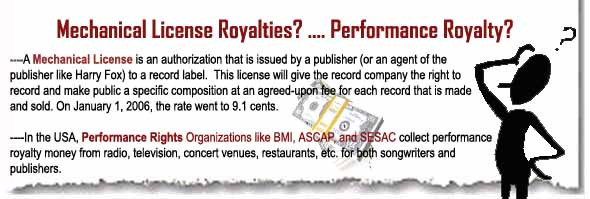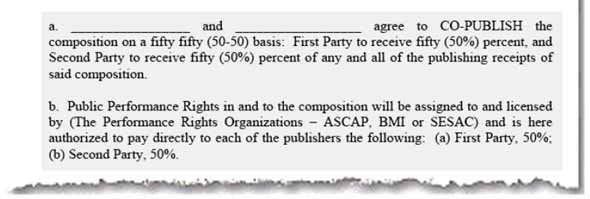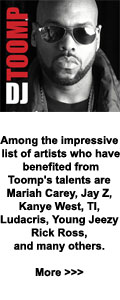|
For the most part, publishing agreements vary from writer to writer, and
publisher to publisher. But, there are a few concerns that all songwriters and producers need to take in mind when considering
a publishing deal. Also, please remember - as stated in previous chapters and sections; if you are expecting to sign into
a music publishing situation, I highly advise that you find an experienced entertainment attorney to guide and counsel you
before signing into any publishing agreement or contract. OK
- basically the way a song is split up is into 2 different halves; the writer's share, and then the Publisher's share. So,
for 100% of all publishing revenues that a particular song generates, it will be 50% for the songwriter(s), and 50% for the
publisher(s).

Now, there are different types of publishing deals. There are single-song deals, as well as year-to-year
deals with options, etc. Also, there is the standard exclusive songwriter publishing deal, where the publisher will
advance the songwriter money, and then in essence own the copyright of the song(s). WHAT IS AN EXCLUSIVE SONGWRITER AGREEMENT? A contract between a publisher and a songwriter in which the songwriter assigns all songs written
during the term of the contract to the publisher in return for a percentage of royalty income. Such an agreement usually involves
advances paid by the publisher to the songwriter.
An example of what a standard exclusive songwriter-publishing
contract might say:

The “standard” publishing deal is a most times a complete “split” of all the income
the song(s) generate; 50% for the songwriter, and 50% for the publisher, but, the publisher will normally have given
the writer an advance of some kind, so the publisher will not pay the writer any money collected for any songwriter royalties
until the advance has been recovered via mechanical royalties, performance royalties, etc.


Then there are co-publishing deals, where the songwriter has his or her own publishing company,
and makes a deal with a second publisher, and both publishers many times may co-own
the copyright and publisher’s share of income. In this situation, most times an advance in also given
that has to be recouped.
An example of a co-publishing agreement’s copyright language:

The basic split of income
from a song in this type of co-publishing deal will be 50% for the songwriter, 25% for the songwriter’s publishing
company that he or she owns, and the remaining 25% for the publishing company he or she does the co-publishing
deal with. Over all it will be a 75%-25% split (if no administration fees,
etc are calculated in). Or maybe an easier way of thinking of it will just be that the writer keeps his or her writer’s
share, and then the publishing share will be split 50/50, or whatever the agreed upon deal is.
An example of a co-publishing agreement’s percentage language:

|
Music Managers




|